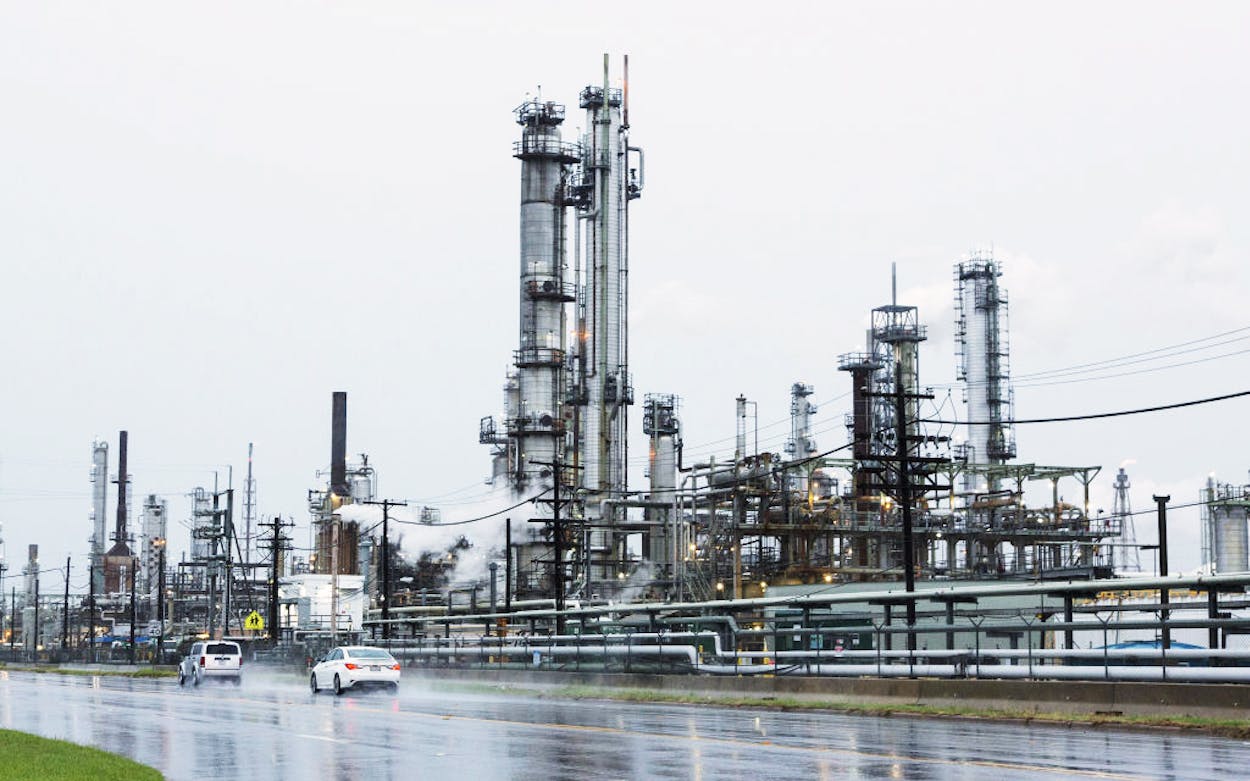Energy Evacuation
Hurricane Harvey is predicted to hit the Gulf Coast Friday night as a Category 4 storm. It will be the most severe storm to hit the U.S. in over a decade. On Wednesday Governor Greg Abbott declared a state of disaster for thirty Texas counties, stating that “preemptively declaring a state of disaster will allow Texas to quickly deploy resources for the emergency response effort in anticipation of the storm’s hazardous conditions.” Additionally, some Texas cities along the coast have issued mandatory evacuations. As Texas residents evacuate or bunker down in preparation for Hurricane Harvey, Texas energy companies are also making moves. According to the Dallas Morning News, energy companies are shutting down and evacuating staff both on and offshore:
Anadarko Petroleum Corp. shut down production and evacuated its Boomvang, Gunnison, Lucius and Nansen oil and gas production platforms in Gulf of Mexico ahead of Harvey, according to statement on the company website Wednesday. Noble Corp Plc. evacuated its Noble Paul Romano rig, Jeff Chastain, a company spokesman, said Thursday by email.
Exxon Mobil Corp. had said it’s cutting output at its Hoover production platform in the Gulf of Mexico ahead of the storm. The company’s also working on plans to evacuate staff in stages from offshore facilities, Suann Guthrie, a spokeswoman, said by email Wednesday. Royal Dutch Shell Plc shut production at its Perdido platform and evacuated the facility.
Experts predict that the storm will affect oil production along the Gulf Coast. “Biggest impact of this storm will be a significant reduction of crude oil imports into the Texas Gulf Coast, resulting in refineries cutting crude rates,” Andy Lipow, president of Lipow Oil Associates in Houston, told the News. “There will also be a significant impact on petroleum product exports impacting supplies into Mexico.”
Energy Safety
With a storm as big as Hurricane Harvey comes the threat of power outages and flooding. Even in the aftermath of the storm, conditions can still prove hazardous. In anticipation of the hurricane, CenterPoint Energy, an energy company with offices in Houston, published electric- and natural gas–related safety tips for the storm. Their electric tips includes staples such as avoiding downed power lines, but also tips on how to safely use electric appliances after they’ve been submerged in water (dry them out for at least a week first). Read the full list and sign up for their outage alerts here.
California Moves In
An attempt to sell Oncor Electric Delivery Company on Monday as delayed by a last minute bid by a California company. Oncor is Texas’s largest utility, and its parent company, Energy Future Holdings, filed for bankruptcy back in April 2014. According to the Dallas Morning News, a bankruptcy judge was deciding between offers from Berkshire Hathaway Energy at $9 billion and Elliott Management at $9.3 billion when Sempra joined the competition with a bid of $9.45 billion. “Our proposal will help bring a satisfactory resolution to Energy Future’s bankruptcy case, keep Oncor financially strong, and protect Oncor customers, while addressing the needs of Texas regulators, creditors and the U.S. Bankruptcy Court,” Debra Reed, Sempra president, CEO, and chairwoman, said in a statement. Before Sempra’s offer, Berkshire Hathaway Energy was the preferred buyer of Oncor, but Berkshire has since announced that their deal with Energy Future Holdings was terminated. See our analysis of how Berkshire Hathaway got outmanuevered.
Faith in Mexico
As President Donald Trump’s trade representative renegotiates the North American Free Trade Agreement, Texas secretary of state Ronaldo Pablos has faith in the power of the energy connection between Texas and Mexico. “We need to make sure that, in spite of all the background noise that’s occurring, we stay focused on the relationship and continue to strengthen the relationship between Texas and Mexico,” Pablos said on Monday, speaking on a panel hosted by the Mexican Entrepreneur Association, in San Antonio. “A strong Mexico creates a strong Texas.” At the same ““Energy: A Connecting Sector Between Texas and Mexico” panel was Texas Railroad Commissioner Ryan Sitton, who also stressed the importance of Mexico’s role in Texas’s economy. “Right now, Mexico imports 60 percent of its natural gas from the U.S., most of which comes from Texas. By 2019, U.S. natural gas exports to Mexico will double, and that means more money for our schools, roads, hospitals and economy,” Sitton said. “Mexico’s energy reforms and demand coupled with near historic highs in U.S. production are creating an enormous opportunity from which both countries will benefit.”
- More About:
- Energy
- Hurricane Harvey








